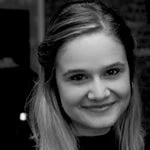
As the World Bank Group strengthens support for refugees, internationally displaced people, and their host communities, the World Bank Art Program curated a multi-dimensional art exhibition entitled, Uprooted: The Resilience of Refugees, Displaced People and Host Communities to contribute a unique perspective. This exhibition showcased the creative voices of those artists touched by the refugee crisis, or those artists who were refugees themselves.

The Uprooted exhibition included a visual art exhibition and musical performances featuring over 30 artists from places such as Bangladesh, Pakistan, Colombia, Lebanon, Iraq, Syria, Jordan, Central African Republic, Burundi, and Guinea. The artists produced works that questioned the impact of transience in individual lives and entire communities of people.
One capstone of the exhibition was the construction of a shed intended to evoke the shelters found in places such as the Azraq Refugee Camp in Jordan. For the exhibition, the shed was enhanced with murals on its sides. Each mural was done by the hand of a different artist – Suhaib Attar, an artist from Jordan and son of Palestinian refugee parents, Marina Jaber from Iraq, a country with millions internally displaced people, Diala Brisly, a refugee from Syria, and Didier Kassai from the Central African Republic, a country in which violence and war have forced hundreds of thousands into displacement.
Juxtaposition of reality and desire
In bringing together the hands of these different artists, to create provocative images of a shared depth of hope, beauty, and joy, on the very structure that serves as a symbol to mass displacement - the challenge that prevents these kinds of hopes and dreams from taking root - the viewers were given a jarring juxtaposition of reality and desire, what is and what is wished for.
“My concept is to portray an albino raven to manifest this state of suspension and exception for refugees in Jordan,” said Suhaib Attar. Ravens, he added, were the messengers of the gods in mythological narratives, they depict movement and displacement.
“Albino Ravens, however, as beautiful and pure are cursed messengers who symbolize the sad pathway and the suspended state of refugees.” he said.
Myriad of global displacement
Other artists in the exhibition included Syrian artist Mohammad Hafez and Iraqi artist Ahmed Badr who created Unpacked: Refugee Baggage, sculptural pieces with audio recordings. Using vintage suitcases and mixed media, Hafez re-created the scenes of homes bombed and ravaged by war alongside voice recordings of real people who experienced those occurrences.
Guinean musicians Abdoul Mbaye and Moussa Mbaye performed poetic rap songs about the hard truths of migration and displacement, while a Burundian speed live-action painter Delphin Starr Niyonkuru simultaneously painted a scene of a displaced mother and child.The exhibition was a multidimensional expression of the myriad of stories, individuals, and experiences - a snapshot of sorts – connected to global displacement. Understanding these stories, and the context in which they are being generated, reminds us that this crisis is about people first and foremost. Their deep resilience inspires us to think about how development can help all affected people rebuild their lives, as work continues to support refugees, internally displaced people, and host communities.


Join the Conversation